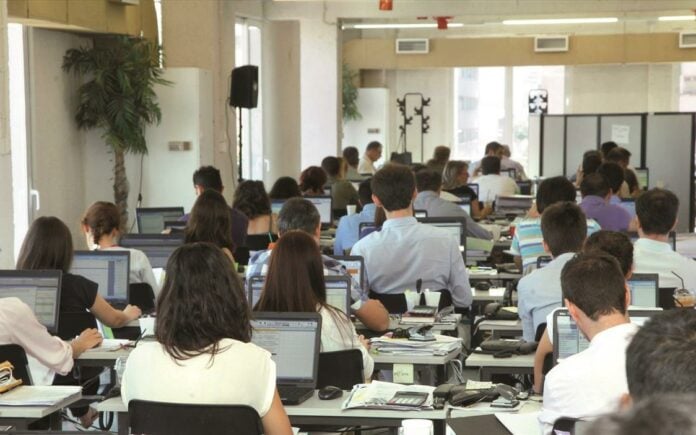By S. Papapetros
Lack of any progress in negotiations between Athens and institutional creditors over labor sector liberalization continues to burden talks to conclude the now delayed second review of the Greek program (third bailout).
Despite a cascade of well-meaning statements by top European officials and the Greek government’s optimism over the recent period, the second review was not approved with a staff-level agreement at Monday’s Eurogroup. In fact, Eurogroup chair Jeroen Dijsselbloem “bumped” the date for a conclusion into 2017.
With representatives of creditors having already left Athens, talks continue via teleconferencing.
According to a labor ministry source that spoke to “N”, the IMF is the strictest among the creditors in demanding reforms, whereas European creditors are “silent participants” in this negotiation.
The same source claimed that European partners (Commission, ECB, SSM) have not taken an active stance on the key demands put forth over the past six months by the IMF, namely, liberalizing the regime governing mass layoffs, opposition to obligatory sector-wide collective bargaining negotiations and the method of calculating a monthly minimum salary.
The Greek side maintains that it has provided all of the legal and technical answers required by creditors, while at the same time presenting studies — on a pan-European level — citing the beneficial effect of collective bargaining for reducing unemployment.
Conversely, the IMF reportedly considers the reforms agreed to and implemented in Greece via the second memorandum as “emblematic”, and is opposed to any revision of previous reforms.














